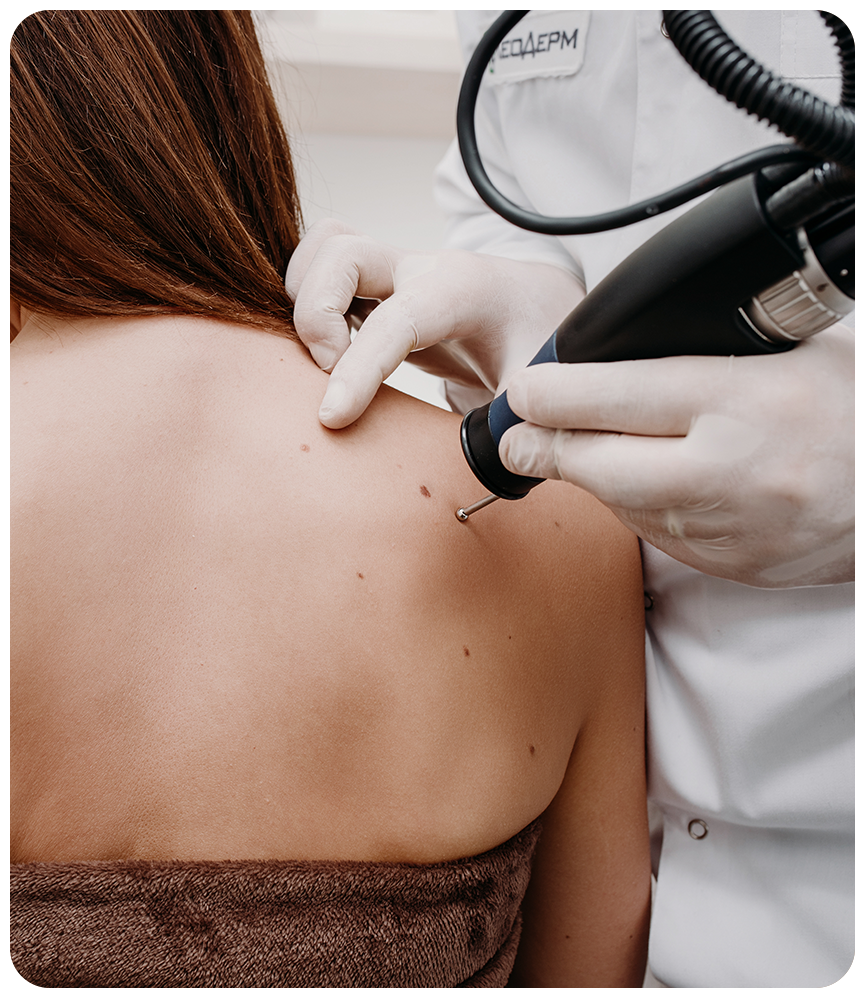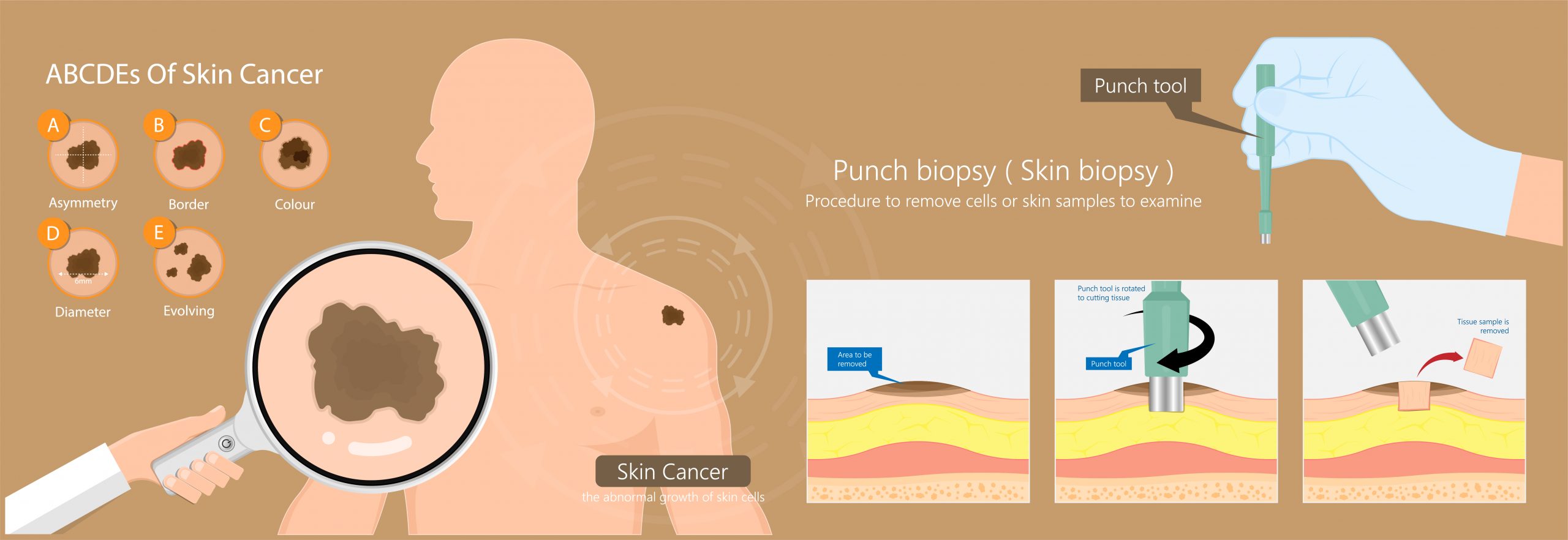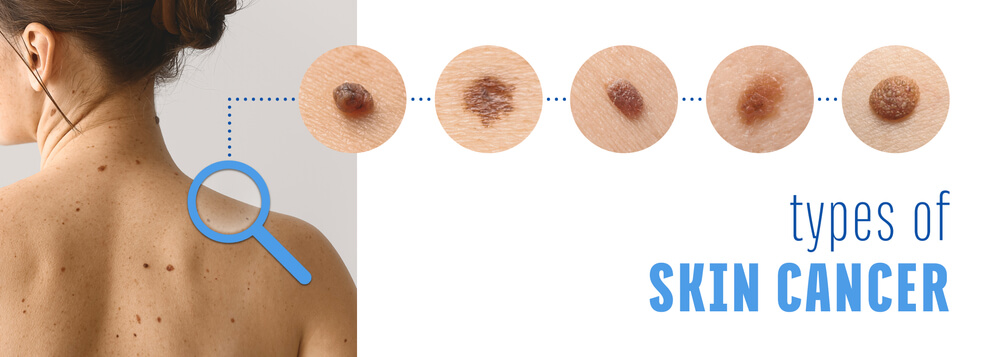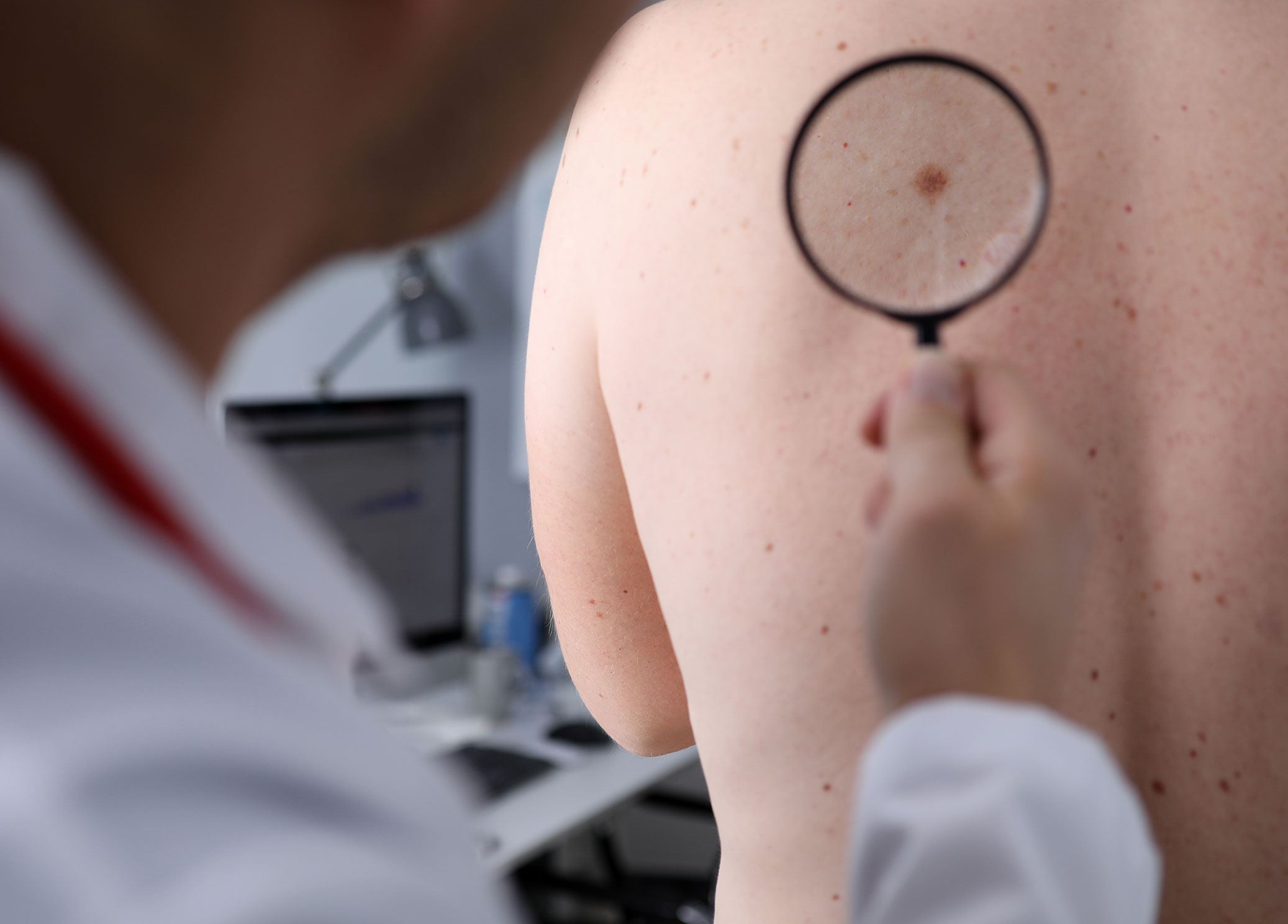SKIN LESIONS/CANCER REMOVAL
Skin Cancers are abnormal growths of the skin. By definition any skin cancer has lost the normal growth characteristics of its native tissue and is growing without the normal control mechanisms.
Our Surgeon Dr. John Li will provide a thorough assessment of any potential skin cancers during your initial consultation.

What is
Skin Cancer?
Skin cancers are abnormal growths of the skin. By definition any skin cancer has lost the normal growth characteristics of its native tissue and is growing without the normal control mechanisms.
How do I know if I have
Skin Cancer?
You are not a clinician and should not diagnose yourself. If you have a lump, skin lesion or mole that has appeared or changed in some way by growing, changing colour, shape or contour, by bleeding, itching or otherwise then you should show it to your local G.P. Most inflammatory or infective lumps will be painful and resolve within two to four weeks. If you have something growing after four weeks, your doctor needs to see it.

Are all
Skin Cancers the same?
Simply put, no. The most common type of skin cancer, the basal cell carcinoma (BCC), is not a real cancer in the sense that it can’t spread to other parts of the body as say a lung or breast cancer may. It will however grow locally and will invade structures if left untreated or neglected. Due to this characteristic however BCC’s are essentially cured by complete local excision.
Squamous Cell Carcinomas (SCC) of the skin are similar to BCC’s but have the ability to spread to local lymph nodes or glands. For skin SCC’s the risk of this spread is about 1% but rises with larger tumours. If SCC has spread to the lymph nodes, it is still curable but will usually require the nodes to be removed and radiotherapy.
Melanoma is a malignant tumour in all senses and has both the potential to spread to local lymph nodes and distant organs. The likelihood of this happening is dependent on many factors but most importantly the depth that melanoma has grown through the skin. Therefore, early diagnosis is of critical importance to cure.
There are a variety of other rarer skin malignancies such as merkel cell carcinoma, atypical fibroxanthoma, malignant fibrous histiocytoma and dermatofibrosarcoma protuberans. These require specialist management, a variety of treatments both surgical and non-surgical.

What does Skin Cancer surgery involve?
This really depends on the size and type of the skin cancer. All skin cancers have to be removed with a margin of tissue to ensure all microscopic spread of tumor is removed. The appropriate margin is different for different tumours.
Small skin cancers can be simply excised under local anaesthetic (LA), and the wounds sutured. Larger skin cancers may require flaps of local tissue or skin grafts to close the defects after tumour removal. These flaps or grafts may be done under LA, sedation and LA, or general anaesthetic (GA) depending on circumstances. Neglected skin cancers may require more radical excision and reconstruction.
Once the Skin Cancer is removed is my treatment over?
In most cases, yes. The removed specimen will be sent to a pathologist to both confirm the diagnosis and to ascertain that the tumour has been completely removed with an appropriate safety margin. Different tumours require different margins. Local recurrence rates for BCC or SCC are in the order of 1% to 5%. If a tumour comes back, it is always hard to know if it is a true recurrence of the original tumour or a completely new tumour arising in the nearby skin.
There are circumstances where the pathology results are unfavourable or excision incomplete due to microscopic spread, it may then be appropriate for either more extensive excision or radiotherapy
Even with clear pathology margins, you should be reviewed by your surgeon at regular intervals to detect recurrence, look for new lesions and ensure optimal healing.

Will I get more Skin Cancers in the future?
Many factors go towards the production of skin cancers, most importantly being genetic susceptibility (skin type to a large degree) and sun exposure. You can not change your parents but you can protect yourself from the sun.
BCC’s and SCC’s are thought to be associated with accumulated solar exposure. Although your sun protection habits may not have been good as a child, if they are not good now and in the future, you will continue to accumulate solar damage and increase your risk of further skin malignancies.
Melanoma on the other hand is thought to be more related to severe sun exposure before 18 years of life which predisposes development of melanoma in later years. Good sun protection is still recommended in patients who have had a melanoma.
How long will the removal of a Skin Cancer take?
Depending on the extent of the procedure skin cancer surgery may last anywhere from 15 minutes to 1 1/2 hours. However, please keep in mind that this is only actual surgical time. To ensure the highest standard of personalised patient care, attention to detail and results, Our Surgeon Dr. John Li requires you to spend appropriate time both immediately before and after the procedure within the surgery. (Note: this time would be in addition to your initial and follow up consultations with Our Surgeon Dr. John Li).
Will I require a general anaesthetic?
Most skin cancer removals can be done utilising local anaesthesia. However, more extensive procedures may require the use of a general anaesthetic.
General Surgery | $ |
First Consultation | $250 |
Additional Consultations | $110 |
Curette and Cautery of a Skin Cancer | $250 |
Removal of a skin lesion by shave excision or diathermy | $110 |
Intralesional Corticosteroid Injection | $100 |
Gallbladder | $500 Known gap |
Hernia | $500 Known gap |
Anti-Reflux Surgery/ Hiatus Hernia Repair | $500 Known gap |
Endoscopic Pilonidal Sinus Surgery | $300 gap/ If uninsured, a surgical fee of $ 850 is payable. |
Gastroscopy | No gap |
Colonoscopy | No gap |
Emergency Surgery After Hours | $500 Known gap |
Cancellation Fee Within 24 Hours | $100 |

